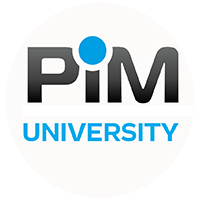Legislation
Consumer Product Safety Improvement Act (CPSIA)
Issues regarding the CPSIA and questions regarding what is required regarding testing and certification of children’s books and other printed matter.
The President signed into law bill HR 2715 in August 2011 which amended the original CPSIA passed in August of 2008. While HR 2715 provided significant relief, it has also raised other questions that need to be answered by CPSC. HR 2715 specifically excluded “ordinary books and other printed materials bound and finished in a conventional manner” created for children over the age of 3 years old from the 3rd party testing requirements of the original Act. Books produced for children 3 years old or younger, or those books having “play value” must be certified as not exceeding the limit for lead or phthalates based on being tested by a certified third party testing company.
Here is a summary as well as recommended actions:
1. Any “ordinary book” or other printed matter that is printed on paper or cardboard with inks or toners and bound and finished using a conventional method paper produced for a child 12 years old or younger must meet the lead requirements of the CPSIA.
2. Any “ordinary book” or other printed matter that is printed on paper or cardboard with inks or toners and bound and finished using a conventional method paper produced for a child 12 years old or younger must meet the tracking label requirements of the CPSIA.
3. The stay on all testing and certification has been lifted, which means all products that must be 3rd party tested and certified must be prior to them being distributed in commerce.
4. Ordinary books and other printed matter for children from 4-12 years old are exempt from third party testing and certification requirements.
5. Books that are designed and intended for children 3 years old or younger must be tested by a third party testing lab before being shipped. A certificate of compliance must be prepared and accompany the shipment.
6. Books that are designed for children between the ages of 4-12 that have “play value” must be tested for lead and/or phthalates (for plasticized parts only) by a third party testing lab before being shipped. A certificate of compliance must be prepared and accompany the shipment.
7. Books and other printed matter that is printed on something other than paper or cardboard must be tested for lead and/or phthalates (for plasticized parts only) by a third party testing lab before being shipped. A certificate of compliance must be prepared and accompany the shipment.
8. Any products that would accompany an “ordinary book” or “other printed matter” must be tested for lead and/or phthalates (for plasticized parts only) by a third party testing lab before being shipped. A certificate of compliance must be prepared and accompany the shipment.
9. A Children’s Product Certification (CPC) (previously referred to as a General Conformance Certificate) must be sent with the shipment of any book requiring testing.
10. CPSC has not yet released a CPC template, but they do have a General Conformity Certificate sample at http://www.cpsc.gov/about/cpsia/faq/elecertfaq.pdf that can be used as a basis for CPC.
11. As of December 13, 2011, the CPSC is now allowing component testing to be performed in lieu of whole product testing. Currently, the CPSC does not required component testing for paper, CMYK process inks and toners, coatings (conventional varnish, water based, or UV-cured ), threads used for book binding, animal based adhesives, or adhesives and other binding materials that are not accessible. Components that were not exempt are spot or PMS inks, saddle stitch wire, non-animal based adhesives that are accessible, metal and plastic coil used for binding, foils used for foil stamping, and laminates.
12. Books and other printed matter that are manufactured using only components that have been exempt from the CPSIA are not required to be tested or certified regardless of the intended age level of the child. The exempt components are paper, process inks, coatings (varnish water based, or UV-cured), threads used for book binding, animal based adhesives, or adhesives and other binding materials that are not accessible. Components that were not exempt are spot or PMS inks, saddle stitch wire, non-animal based adhesives that are accessible, metal and plastic coil used for binding, foils used for foil stamping, and laminates.
13. It is anticipated that your customers may still want some assurances that the product you produced will meet the requirements of the CPSIA. Language to this effect can be included in your contractual reps & warrantees, with a letter, or modifying General Conformity Certificate to fulfill that purpose.
14. Your customer should provide you with the information as to whether a book is one with play value and what age level the book is designed to address. However, if this information is not provided, the sales person and/or customer service representative needs to contact the customer and clarify its intent and purpose as well as age level.
15. As stated earlier, even though testing is not required for ordinary books for children 4-12 years of age or other printed matter, the manufacturer is required to produce a product that meets the requirements of the CPSIA. Therefore, companies are expected to verify that the materials and process they use in manufacturing books and other printed matter meet the limits. The systems, procedures, or internal testing that is used to insure these results is at your discretion. If an incident occurs where it is proven or suspected that a product would exceed a limit, such as lead, you must be able to provide documentation as to how you have implemented a program to ensure compliance. It is highly recommended that declarations from vendors and records of product showing these materials were used in the production of the product be obtained and maintained. One way this can be done is to indicate on the “job jacket” that a specific product is a children’s product as this will serve to alert all of the production personnel about the type of product that is being produced and records should be maintained.
If you have any questions regarding the CPSIA, please contact Gary Jones at 412-259-1794.


